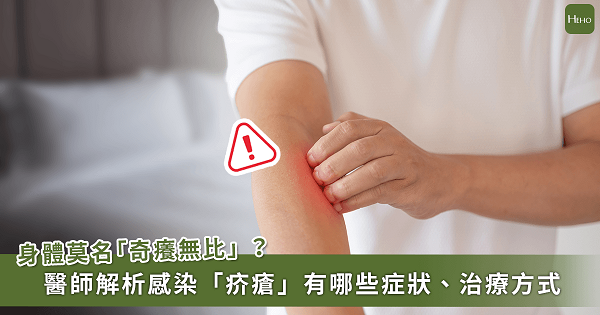Scabies mites are invisible to the naked eye, and the most noticeable symptom after infection is intense itching. Scabies are mainly transmitted through contact, including with infected people or animals, or by touching contaminated bedding, clothing, etc. Common symptoms include rashes on fingers, wrists, underarms, and the abdomen, especially worsened itching at night under blankets. Without timely treatment, it may lead to severe complications. The most common symptom after contracting scabies is 'intense itching'." (Photo/Heho Health)
The most common symptom after contracting scabies is 'intense itching'." (Photo/Heho Health)
Treatment of scabies requires addressing the patient, contacts, and the environment simultaneously. Traditional medications like permethrin cream and benzyl benzoate lotion are effective but can irritate the skin. Newer oral medications like ivermectin are more convenient, requiring only weekly doses. Preventive measures include sun-drying or tumble-drying clothes at 60 degrees Celsius for at least 30 minutes. Furniture that the patient has been in contact with should be isolated for 48 to 72 hours to allow the mites to die naturally. Five situations where scabies infection occurs." (Photo/Heho Health)
Five situations where scabies infection occurs." (Photo/Heho Health)
Crusted scabies (Norwegian scabies) are highly contagious and can even manifest on the face, typically affecting those with weaker immune systems. In these cases, the rashes form thick crusts and can lead to bacterial infections or even sepsis. When visiting or caring for such patients, enhanced cleaning and disinfection are crucial to prevent infection.







